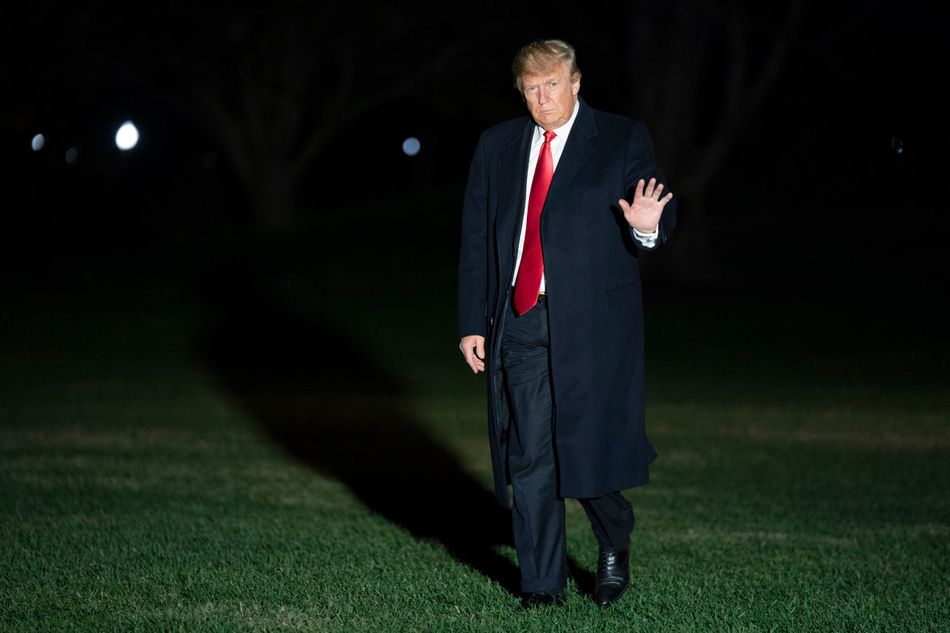Last month, the pipe bombs sent to prominent Democrats and their allies and the murder of eleven worshippers in a Pittsburgh synagogue provoked a wave of soul-searching and finger-pointing over the state of political discourse in the United States. When it emerged that the would-be bomber drove a van covered in right-wing images, and the Pittsburgh shooter was obsessed with the supposed threat of immigration from Mexico and Central America, Democrats blamed Donald Trump for fomenting violence.
Tying together the specific targets of these acts of violence is a deep paranoia: a fear of the machinations of supposed liberal “puppetmasters” like George Soros, the supporters of immigration reform and applicants for asylum, and even the Jewish community itself. This paranoid worldview resonates powerfully with Republican party rhetoric in the Trump era, and as we head into the crucial midterm elections, it’s worth taking some time to try to explore why.
The first thing to understand about Republican paranoia in the present moment is that it has no real analogue in the Democratic Party. Left-leaning people may be yelling at politicians in the halls of Congress and DC-area restaurants, but real violence—up to and including mass murder—is far more likely to come from the political right than the left, and has been for many years. Even setting actual physical harm aside, there is no liberal or leftwing equivalent to the weird fringe “Q Anon” or “Pizzagate” theories, no liberal Alex Jones, and—crucially—no liberal Donald Trump.
Why are Republicans so inclined to see themselves as the victims of shadowy conspiracies? One answer is that while they see themselves as representing the strong solid middle ground in American public opinion, the available evidence suggests that the opposite is true—that it is the Democratic Party, not the Republicans, who possess untapped reserves of popular support.
Consider: when Donald Trump rails against the polls, he is doing so as the least popular president in modern American history. When he brags about—and preposterously inflates—the size of his rallies, he does so as the second Republican president in two decades to be elected despite receiving fewer votes than his opponent. And when he claims that his opponents are voting illegally and stealing elections, he does so as a president whose congressional majorities rest more on quirks of House and Senate representation than on broad public popularity.
And so it is not surprising that the Republican party, despite holding the reins of power throughout the federal government, sees itself as so embattled and oppressed. Nor is it surprising that so many of its supporters are so eager to retreat to the comfort of conspiracy theories and paranoid fantasies. If the polls are wrong and the elections are rigged against them, then the Republican Party can maintain its self-image as the protectors of the real America, while the Democrats are a fringe party of wealthy elites, racial and religious minorities and other marginal constituencies.
This week, the polls overwhelmingly indicate that Democrats will once again receive a robust majority of the votes cast. The primary source of uncertainty is whether that majority will be large enough to win them control of the House of Representatives and perhaps the Senate, or whether gerrymandering, Democratic concentration in cities—and outright voter suppression—will provide the Republicans with enough of a cushion to retain power despite their numerical disadvantages.
If the Democrats take control of the House of Representatives after Tuesday’s elections, they will gain the ability not merely to thwart much of Trump’s remaining legislative agenda, but also to launch real investigations with real teeth of the president and his cabinet on any number of fronts. But the challenge such a win would pose for the Republican Party—and for the future of the country—runs deeper than that.
If Donald Trump and his supporters feel persecuted and betrayed now, how will they feel if a few dozen victories in close local races give the Democratic Party control of the House? How will they feel and how will they respond? Can we be confident that President Trump will not declare those victories illegitimate? Can we be confident that he will not seek opportunities to thwart the victors? Can we be confident that the wave of violence we have seen in recent weeks will not intensify? Can we be confident that the next round of elections—in which that same House will be on the ballot alongside President Trump—will be free and fair?
The midterm elections constitute the most serious test yet of the resilience of American democracy in the Trump era. The next great test of our democracy will begin as soon as Tuesday’s votes are counted.
How the US midterms became a referendum on Republican paranoia
The midterm elections constitute the most serious test yet of the resilience of American democracy in the Trump era—at least, until the results come in
November 06, 2018

November 2, 2018 - Washington, DC, United States: United States President Donald J. Trump returns to The White House after attending political events in Montana and Florida. (Chris Kleponis / Polaris)











